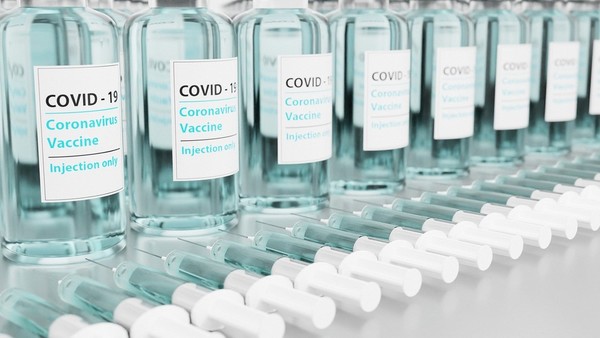Korea and the U.S. will strengthen vaccine partnerships in the private sector to overcome the global health crisis driven by the Covid-19 pandemic, Cheong Wa Dae said Tuesday.
On Tuesday morning in New York, vaccine companies and research institutes from the two countries held a signing ceremony to enhance the Korea-U.S. vaccine partnership and a Korea-U.S. roundtable for the global vaccine business.

The ceremonies aimed to elaborate on how Korean and American vaccine firms and research institutes can cooperate and seek ways to overcome the global health crisis through solidarity and collaboration in the private sector.
At the vaccine partnership signing ceremony, Cytiva, a U.S. maker of vaccine materials, submitted a report for its plan to invest in Korean manufacturing facilities for high value-added cell culture bags.
Cytiva is the first global vaccine material manufacturer to invest in Korean production facilities since the outbreak of Covid-19.
The investment is likely to build a stable supply chain of vaccine materials and help Korea become a global vaccine hub.
Also, leaders of 17 Korean and U.S. vaccine companies and research institutes attended the event to sign four memoranda of understanding (MOUs) between companies and four other MOUs between research institutes. The MOUs involved supplying vaccine materials, joint vaccine development, consignment production, and research cooperation to respond to infectious diseases.
The latest events showed that the two countries had made active cooperation in vaccine projects after building a global vaccine partnership in May during a summit between President Moon Jae-in and his U.S. counterpart Joe Biden, observers said.
The cooperation has expanded to small- and medium-sized enterprises, and the scope of collaboration has diversified to raw and subsidiary materials, joint vaccine development, and consignment production.
Also, it is meaningful that the vaccine partnership benefits both countries in mutual technological cooperation and import and export of vaccine materials.
At the business roundtable, CEOs of 12 vaccine companies from Korea and the U.S. emphasized the importance of cooperation between governments and international organizations.
From Korea, Eubiologics, Eyegene, Curatis, Pharmgen Science, ST Pharm, and GeneOne Life Science participated in the roundtable. From the U.S., Cytiva, Adjuvance Tech, Trilink, HDT Bio, IVY Pharma, and Access Bio attended the meeting.
The companies discussed how to expand vaccine production through technical cooperation, stably supply raw and subsidiary materials for vaccines, and ways to cooperate in Covid-19 vaccine development and next-generation vaccines.
Joining the events were Health and Welfare Minister Kwon Deok-cheol, Trade Minister Yeo Han-koo, Korea Health Industry Development Institute President Kwon Soon-man, and KOTRA Executive Vice President for Innovative Growth Kim Sang-mook. Richard Hatchett, CEO of Coalition for Epidemic Preparedness Innovations (CEPI), delivered a keynote speech.
Hatchett explained CEPI’s efforts to increase Covid-19 vaccine productions and ensure equal distribution. The COVAX Marketplace, a platform to improve the flow of Covid-19 vaccine supply, and the Korea-U.S. vaccine partnership will stimulate the global vaccine production and supply, he said.
Health and Welfare Minister Kwon introduced Korea’s efforts to build a global vaccine hub and investment plans. To overcome the global infectious disease crisis, he emphasized that Korea-U.S. vaccine cooperation should be solid both in the public and the private sector.
Separately, the Korean government and the U.K. also clinched a vaccine swap deal.
Under the deal, Korea will get 1 million doses of Pfizer’s Covid-19 vaccine and return the same doses in installments within December this year. The detailed supply schedule is in the discussion.
The 1 million doses of Pfizer vaccines from the U.K. will be rolled out to people in their 50s and young adults aged between 18 and 49 for their second shots, the government said.

